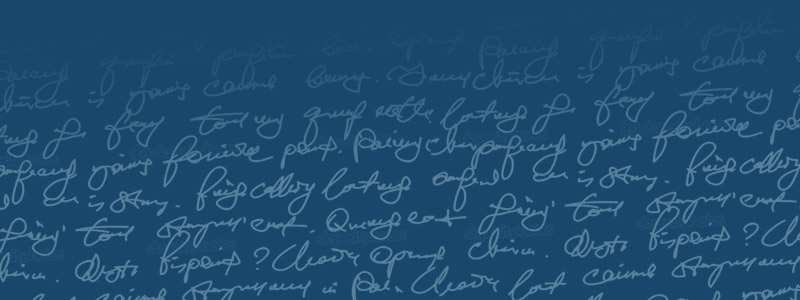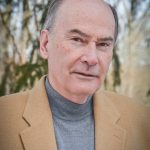[vc_row][vc_column width=”1/1″][mk_title_box color=”#17466a” highlight_color=”#000″ highlight_opacity=”0″ size=”24″ line_height=”34″ font_weight=”inherit” margin_top=”0″ margin_bottom=”18″ font_family=”none” align=”left”]The Divine Therapy: A First Step Toward Finding Peace of Mind[/mk_title_box][vc_column_text disable_pattern=”true” align=”left” margin_bottom=”0″]If you’re seeking peace of mind, emotional fulfillment, and a sense of your place in the world, try looking in hell. We’re not talking about your Sunday-school teacher’s fire-and-brimstone inferno but the one you’ve built for yourself in the privacy of your own mind. According to husband-and-wife psychotherapists Bonney and Richard Schaub, the road to enduring solace begins, inevitably, with a tour of your home-honed torture chambers.
The Schaubs’ personal journey, which led to their book, Dante’s Path (Gotham), began 40 years ago. Frustrated that traditional therapy failed to address spiritual needs—and that so many apparently successful people they met seemed to feel lost in their lives—they stumbled on the work of an Italian analyst named Roberto Assagioli. A student of Freud, Assagioli had rejected the master to develop something called psychosynthesis, which rests on the belief that we’re each capable of reaching beyond our personalities, that we can grasp transcendent wisdom—but only if we first take a long, hard look at how we contribute to our suffering.
“Born in a Jewish ghetto in 1888, Assagioli was no stranger to the kind of hardships we can’t control. He was imprisoned by the Fascists (for being a pacifist), then freed, only to be forced into hiding during the Nazi occupation. Shortly after the war, his only child died. He deeply understood the pain that life can visit on us, yet insisted that a profound, healing wisdom is always available. He found his internal Mapquest not in modern science but in Dante’s 14th-century masterpiece, The Divine Comedy. Written while Dante was in exile, this epic poem depicts the progress of “the Pilgrim” on a guided tour of hell and purgatory, and finally into an illuminated paradise. While Dante’s frame of reference was Catholicism, Assagioli read his work metaphorically, as an exploration of our inner realms, a model of personal transformation.
“The idea,” Richard Schaub says, sitting in the Manhattan office where he and Bonney use psychosynthesis to treat clients with 21st-century problems, “is that we all use a limited amount of consciousness. If it’s absorbed in hell patterns—fear-based instincts and the reactions we develop around them—that means we’re unable to discover other parts of ourselves.” We create our own hell, the Schaubs believe, through indifference (attempting to protect ourselves by assuming an air of not caring); greed (insatiably craving money, stuff, accolades—anything to fill the emptiness inside); jealousy; intentional cruelty; betrayal; and addiction. We’re in “purgatory” when we become aware of our self-created torments and consciously work to release ourselves, and rise to “paradise” when we tap into our higher wisdom, our universal connection with others.
“Combining traditional therapeutic techniques with meditation, visualization, and even contemplation of art, the Schaubs have helped cancer, cardiac, and AIDS patients gain relief from depression and rage. They’ve also led clients with marital strife, career anxiety, and garden-variety angst to recognize their role in their problems as a first step in getting unstuck.[/vc_column_text][vc_column_text disable_pattern=”true” align=”left” margin_bottom=”0″]”The Schaubs’ view of addiction is particularly eye-opening: “It isn’t just about drugs and alcohol,” Bonney says. “Some people say, ‘I’m a shopaholic,’ or that kind of thing. But the next step is to understand how habitual thoughts stop us. For example, someone I work with has a hard time taking in all the things she has accomplished. There’s a part of her that’s tremendously envious of other people.” She can now watch that misery-making process start in her thinking, Bonney says: “She goes into a social situation and compares herself—that person looks better than she does, that woman’s younger, that person makes more money. It becomes completely self-defeating. It takes over the way a drug does. But it goes back to her survival instincts from childhood. This was her way of taking care of herself—having to always be the best and the smartest and the prettiest to get the attention she needed.”
“Worry, Richard says, can also be addictive. “I know a highly successful woman with tons of money in the bank, but she obsessively thinks about every horrible thing that could happen—If this goes wrong, I’ll do that, and if X happens, I’ll do Y—so she probably won’t end up on the street. Then she feels temporarily relieved, as though she had a drink. But it’s destroying her stomach,” Richard says. “To liberate your consciousness, you have to recognize these patterns and actively help free yourself.”
“Looking in your dark corners takes guts—but the eventual payoff might be extraordinary. “So many people feel a nagging sense that they’re not getting something, some promise hasn’t been fulfilled,” Richard says. “Our understanding is that we have potentials we don’t have a name for and we don’t know how to make them active. That’s part of the spiritual journey, to discover those capacities.”
“When Dante started to write The Divine Comedy, he had lost everything,” Bonney says. “He needed to face his losses and then find a way to still feel hope and connection.” Dante spent the last years of his life reaching for higher states of consciousness, and he taught that love—an ego-transcending unity—is the source of all joy. “I see people today who are so identified with a job and then the job isn’t there, and the first response is, Oh my God, this is unimaginable. But once they get past the shock, a lot of people start to reconnect with what’s really important to them. And they’re grateful. They wouldn’t have chosen to be thrown into this position, but it got them to reevaluate what they want to do with their lives, what they want to put their energy into.” And their vulnerability can bring them closer to other people, “to a sense of union as opposed to separateness,” Bonney says. “Having listened to so many people’s stories, I can read what Dante wrote and recognize it as true and feel tremendously encouraged by the fact that literature and art can touch human truth at such a deep level.”[/vc_column_text][mk_padding_divider size=”30″][vc_column_text disable_pattern=”true” align=”left” margin_bottom=”0″]As seen on oprah.com[/vc_column_text][/vc_column][/vc_row]





